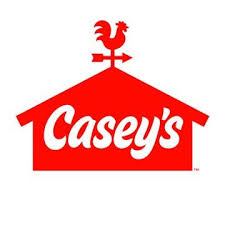Entrepreneurs: Bill Adamowski
Director of innovation and entrepreneurship, Iowa State University Economic Development and Industry Relations Department

JOE GARDYASZ Aug 28, 2015 | 11:00 am
4 min read time
889 wordsBusiness Record Insider, Education, Innovation and Entrepreneurship, Retail and BusinessSerial entrepreneur Bill Adamowski sought to return to Iowa from Silicon Valley earlier this year and was looking for the next big startup deal he could launch.
After several discussions with Bill Crum at the nascent Office of Economic Development and Industry Relations (EDIR) at Iowa State University, he wound up considering an offer to work for ISU.
“My intentions were never to go join the university; I wanted to go start a company,” Adamowski said. “But this was a way to actually connect with researchers, students, faculty members and to really help startups.”
So he accepted ISU’s offer and since March has led EDIR’s efforts related to entrepreneurship and the use of big data analysis.
Adamowski is no stranger to big thinking and audacious deals. His first job out of college was working for General Electric Research Laboratory, helping to upgrade the software technology driving the U.S. missile defense system. He later was chief technology officer for Wells Fargo Home Mortgage, which first brought him to Greater Des Moines. After leaving Wells Fargo, he started a mortgage software company, MortgageHub, which later sold for about $40 million.
“As an entrepreneur you ride the next wave,” Adamowski said, and that next wave was globalization. He formed ISGN Solutions Inc., a business support services startup company backed by two major international equity partners. He built that company to $200 million in revenues before selling it to Accenture.
His next move was to Ellie Mae Inc., a $2 billion California software company that processes nearly a quarter of all U.S. mortgage applications, where he led a successful initial public offering. Then on to Florida, where he created a new business unit for Digital Risk LLC and built that into a $100 million-plus unit and then sold the company for $175 million.
For the past three years, Adamowski was in Silicon Valley, working as a senior vice president for real estate data company CoreLogic Inc., running technology processes in the company’s big data and analytics space.
After their son moved to Des Moines and their daughter transferred to Iowa State, Adamowski and his wife decided it was time to move back to Iowa.
“What got me to Iowa State was I was doing these prospecting trips (to Iowa), trying to figure out what company I was going to start next,” he recalled. “I was looking at the entrepreneurial scene around Ames and Des Moines, and started having conversations with Iowa State. Specifically, what are they doing around commercializing technology that’s coming out of there? The good timing on my behalf was that they said commercialization was a priority for Iowa State — that it was a high priority for President (Steven) Leath.”
Just as he has done with his business deals, Adamowski has set his sights high for ISU’s work with entrepreneurs.
“Informally, I would like to see Iowa State be in the top 10 of new venture creation coming out of all universities,” he said. “That’s a lofty goal, considering that there are a number of universities in larger metro areas that typically will create more. But I think we can get there.”
Q&A
What advice do you most often give young entrepreneurs?
What I like about young entrepreneurs is their passion; I think that’s great. One of the things I try to get them to focus on is they’re trying to push a lot of balls at once. I tell them, let’s get it down to some realizable sets of goals you’re trying to accomplish. If you try to focus on all of it, you really don’t get things moving. You focus on some of the core items, which are typically product, sales or raising capital, and let others focus on other areas. You don’t have to be an expert in everything; just focus on what you need to focus on.
Any guiding principles that you adhere to?
To me, entrepreneurship is about building a business. So one of my favorite expressions is ‘Do good and do well.’ Sometimes people think those are opposing objectives; I don’t think they are. University people are typically do-good people, but there’s no reason you can’t do well at the same time. You don’t have to sell out to do well. And the other one I like is “Go big or go home.” One of the things I learned at Silicon Valley is that they think big. Some of them are ridiculously large. But the key is, if you have a dream that’s big enough, it’s amazing what you can get accomplished. It’s all about building the business. If you can’t do that in three or four years — unless it’s a lifestyle business — you should shut it down.
What frustrates you?
If I look at what Silicon Valley has and then seeing what’s here, I think we have phenomenal talent who work hard. I think what frustrates me is that we’re not doing as good a job as we could supporting them, as well as getting people to take some risks to make some of these things happen. In Silicon Valley, there are people with lesser ideas, less intelligence, less work ethic, but they’re trying to make things happen. It’s amazing when you’re trying to make things happen and you have the support infrastructure, that they make things happen.









